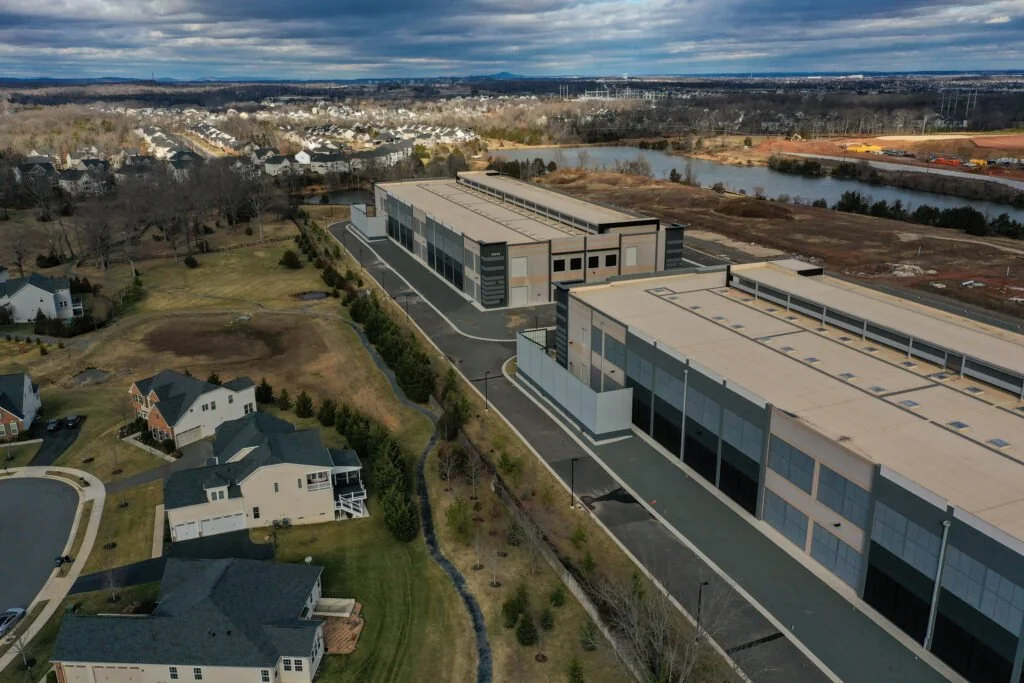Data Center Growth in Virginia Raises Environmental Concerns
An unexpected move by Loudoun County, a Washington, D.C. suburb in Northern Virginia, sparked wide-ranging discussions in March. The region, which is known for hosting the world’s largest collection of data centers, denied a proposal to build a larger data center than what the existing zoning permits. This astounded many as the decision was later reversed, approving a smaller project version. However, the initial denial increased concerns about the rapid rise of data centers and its implications for Virginia’s ambitious carbon reduction objectives.
Virginia’s largest electric utility, Dominion Energy, predicts that data centers will be the primary driver of the state’s increasing energy demand over the next 15 years. Although Dominion is committed to decarbonizing its Virginia grid by 2045, in line with the Virginia Clean Economy Act, the utility’s long-range plan indicates the need for new natural gas plants to meet the demand. This has led environmental groups to question whether the state can achieve its zero-carbon goal given the data center industry’s rapid growth.
Data Centers’ Significant Presence in Virginia
For nearly three decades, data centers have been a staple in Virginia, particularly in Northern Virginia. Northern Virginia became an attractive location for data centers due to its proximity to the federal government and defense firms. The region, especially Ashburn in Loudoun County, quickly became the heart of the U.S. data center industry.
The Virginia government has welcomed the data center industry. Since 2010, the state has exempted data centers from sales and use tax for many of their key components, provided they meet certain criteria. Such incentives have significantly attracted data centers to the state. However, as more data centers set up shop in Virginia, concerns are rising. Residents in Loudoun and neighboring Prince William County have complained about continuous humming from the centers’ operations, while conservationists worry about their heavy water use and expanding footprint.
Data centers are power-intensive and require a constant flow of electricity. As the industry expands, more electricity is needed to meet the demand, prompting the construction of new power sources and transmission lines. Although many data center companies have been active in developing renewable energy, the industry’s rapid growth in Virginia poses a challenge for utilities.
The Environmental Debate Over Data Centers
Environmental groups have questioned the accuracy of Dominion’s forecasts, suggesting that the utility is overestimating future growth to justify the continued operation and construction of natural gas plants. Others point out that much of the expected demand comes from a very small number of companies. If these companies change their growth plans, the actual growth in Virginia could be significantly different from Dominion’s current estimates.
Despite these disagreements, there is little dispute that data centers’ electricity demand is soaring in the short term. Over 5.8 gigawatts of power will be needed by various new facilities by 2032, which has led many to call for smarter planning and optimized solutions. Meanwhile, the state’s Joint Legislative Audit and Review Commission has been tasked with assessing how the rise in power demand from data centers may impact Virginia’s transition from fossil fuels to renewables.
As tensions rise, the search for solutions may become more complicated. Multiple groups, including the Virginia chapter of the Sierra Club, have announced plans to form the Virginia Data Center Reform Coalition to impose tighter data center regulations. Despite the challenges, some believe that partnerships with the industry can lead to “win-win solutions”.
Original Story at insideclimatenews.org
